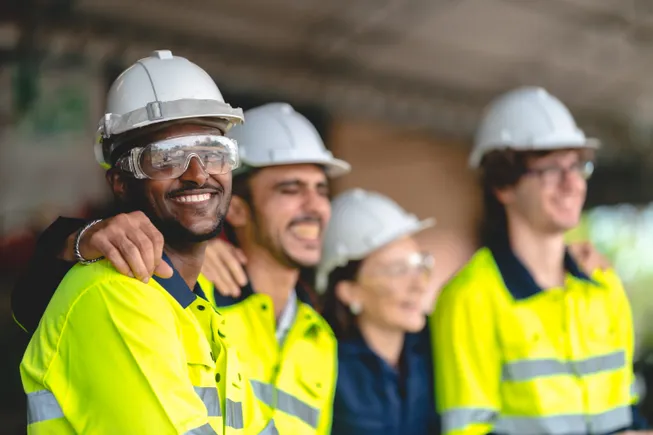Fulton Cure is a consultant at Well Built Construction Consulting, a Baltimore-based firm that delivers strategic consulting, facilitation services and peer roundtables for construction executives. Opinions are the author’s own.
Members of Generation Z like me grew up in a world of convenience. We never had to learn how to read a map. We’ve never had to put quarters into our phones to make a call. We created email accounts when we were in elementary school and got cell phones before we could drive. We’re comfortable with technology because we grew up with it.
On the contrary, many of our more experienced co-workers began their adulthood and careers with little to no reliance on technology. They learned to do their jobs the old-fashioned way. Pen and paper, picking up the phone and calling people, swinging a hammer.
There’s a huge gap between the technologically centered lifestyle Gen Zers grew up with, and the hammer-and-nail daily grind of a construction site. Similarly, there’s a gap between the way a Gen Zer will approach a career in construction and how someone from an earlier generation might.

Fulton Cure
Permission granted by Fulton Cure
The construction industry has come a long way in incorporating more technology on jobsites. For example, it’s common to see foremen and GCs walking around with digital plans on their iPads or sending out punch lists from their phone via construction management software.
This is comfortable to a Gen Zer. We know how to use an iPad and can figure out project management software easily. I’ve had older coworkers share with me that they still tend to write out punch lists and make copies of those handwritten lists to hand out to subcontractors. I’ll leave it up to your imagination about some of the issues that would come from that method.
Open to change
The building industry is ever-evolving with new tools, new methods, new technologies, just to name a few. It is going to continue to evolve as the world does. With that, the way we approach construction management needs to evolve as well.
With the declining interest in careers in the construction industry, it’s vital that we get the younger generation excited about being a part of it. To do so, we must be willing to adapt to this new way of thinking.
Construction executives need to be open to change. Change how you treat your employees, change how you interact with your trade partners, change how you interact within an office. Take the approach that Gen Zers’ perspective and worldview is different from yours. That doesn’t make theirs wrong and yours right. It’s just different, because we were raised differently.
Members of Generation Z value respect, empathy, creativity and a fast-paced environment. We desire instant gratification and positive feedback. As a boss of a Gen Zer, be willing to provide positive feedback any time possible.
When constructive criticism is needed, keep in mind that respect, empathy and direct communication are what’s best. Also remember that Gen Zers are typically looking for things to be done faster, easier and more efficiently. So be open to hearing ideas, exploring new methods and thinking about the ways they improve team morale.
Mutual respect
In contrast, younger construction managers need to understand that there are aspects of the job that are best done in a particular way. It’s been proven that the best way to communicate with a trade partner is to pick up the phone and call them. Emails and text messages serve their purposes, but nothing is more effective than a phone call.
Similarly, there are ways schedules are built and particulars of each trade that must be done in a certain way. When you see an opportunity for improvement in means and methods, have an honest conversation with your boss. Tell them why you want to do things differently and explain how it accomplishes the goal you have.
As the construction industry continues to evolve, bridging the gap between generations is key to its future success. Gen Z brings fresh perspectives, adaptability and a natural affinity for technology while more seasoned professionals offer invaluable experience, time-tested wisdom and a deep understanding of the industry’s foundations.
By embracing the strengths of both, construction companies can foster innovation, improve efficiency and create a work environment where all employees thrive. The future of the industry depends on our ability to work together, learning from one another, and cultivating an atmosphere where every generation feels valued and empowered to contribute.
This mutual respect and collaboration will not only make the workplace stronger, but will ensure that construction continues to grow and thrive.

